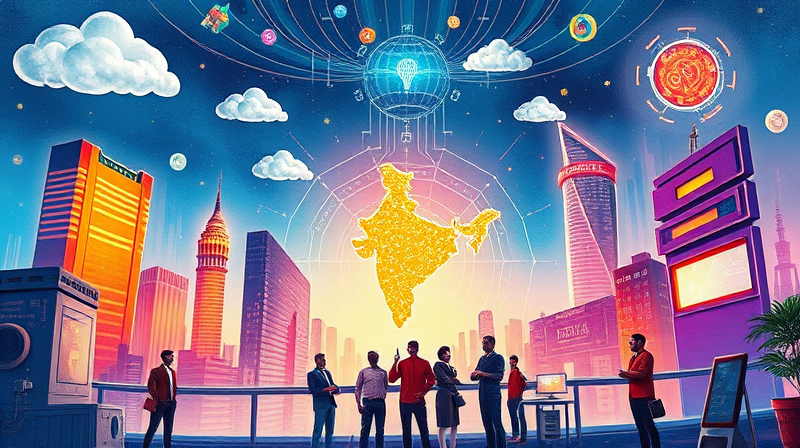
Over the past decade, India's technology sector has emerged as a global powerhouse, consistently delivering above-forecast performance and redefining the contours of digital innovation. From bustling innovation hubs in Bangalore to the rising tech clusters in Kochi and Coimbatore, the industry has demonstrated an unparalleled capacity for growth.
In FY25, the sector is projected to generate $282.6 billion in revenue, marking a 5.1% year-on-year increase. Projections for FY26 indicate a milestone of over $300 billion, further cementing India's position as a top global IT destination. The IT-BPM industry, contributing 7% to GDP in FY24, is on track to reach an estimated 10% by 2025, reflecting accelerated digital transformation nationwide.
Exports continue to soar, with software and service revenues exceeding $193 billion in FY23. A compound annual growth rate of 13% for 2025–2030 underscores the sector’s long-term expansion potential, driven by rising global demand for cost-effective and innovative solutions.
Several key factors underpin this remarkable performance:
These elements have collectively created a fertile environment for startups and established firms alike, enabling them to deliver world-class services and drive sustainable economic impact.
India’s tech ecosystem is at the forefront of multiple cutting-edge trends:
Companies are integrating scalable AI solutions and next-generation hardware to remain competitive, heralding a new era of deep innovation across sectors.
The IT job market in India is experiencing robust growth, with a 22% expansion forecasted between 2023 and 2025. Fresh graduate hiring is set to increase by 40%, reflecting strong demand for software developers, data engineers, cloud security experts, and data scientists. Starting salaries for these roles range between ₹9.6 and ₹13.6 lakh per annum, with specialized positions like penetration testers commanding up to ₹11.8 lakh.
This surge in opportunities underscores the industry’s role as a major employment driver, fostering a dynamic and future-ready workforce.
The government’s visionary policies have been instrumental in shaping the sector’s growth. Initiatives such as the AI Mission and skill development programs in collaboration with Accenture and Amazon Web Services are strengthening talent pipelines. Comprehensive policy frameworks for cybersecurity, digital competition, and public digital infrastructure have laid the foundation for inclusive digital empowerment across the country.
By promoting cross-sector partnerships and maintaining policy agility, India has cultivated an ecosystem where startups and multinational corporations can thrive side by side.
Despite its stellar performance, the industry must navigate several challenges:
Addressing these issues will require sustained investment in education, research, and cybersecurity infrastructure to safeguard the sector’s hard-earned gains.
Looking ahead, India’s tech sector is poised for continued outperformance. Investments in automation, cloud services, and advanced AI solutions are expected to drive revenue growth well beyond the $300 billion threshold. The domestic and global appetite for skilled professionals will only intensify, especially in emerging fields like generative AI, cybersecurity, and data engineering.
With a strategic focus on inclusive digital growth, industry stakeholders are committed to fostering an innovation ecosystem that delivers broad-based economic benefits. As India cements its status as a global technology leader, the sector’s remarkable journey serves as an inspiring testament to the transformative power of visionary policy and human ingenuity.
References













